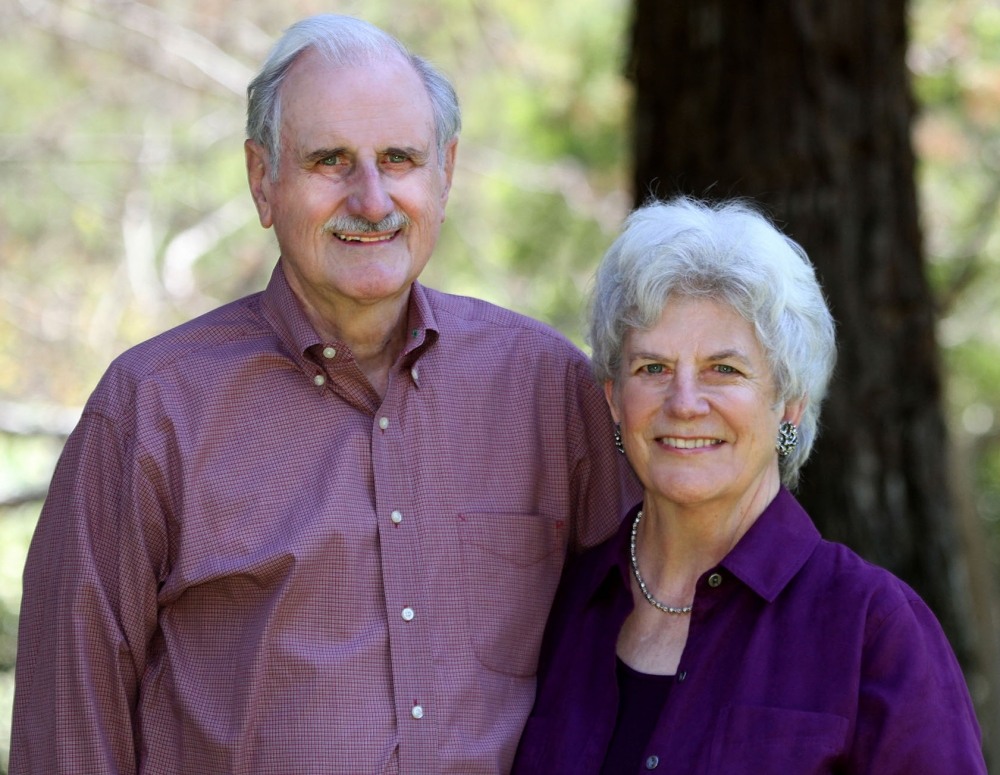
‘For Distinguished Leadership’
Duncan Mellichamp, a professor emeritus and a founding faculty member of the Department of Chemical Engineering at UC Santa Barbara, is a 2018 recipient of the Oliver Johnson Award for Distinguished Leadership in the Academic Senate.
Presented every two years, the award recognizes UC faculty members who have provided outstanding service to the Academic Senate. It is named for Oliver Johnson, a professor of philosophy at UC Riverside and longtime Senate activist. Johnson died in 2000.
In 1996, Johnson made a generous gift to the systemwide Academic Senate, the earnings of which are used to fund the award that bears his name.
Also receiving a 2018 award is Daniel Simmons, a professor emeritus of law at UC Davis. Mellichamp and Simmons will be recognized July 25 at a dinner in their honor hosted by the UC Academic Senate.
“The Oliver Johnson Award for Distinguished Leadership in the Academic Senate is the highest honor given by the Academic Senate, at the systemwide level, to one of its members,” said Henning Bohn, a professor of economics at UCSB and divisional chair of the campus’s Academic Senate. “Duncan Mellichamp is a worthy and very appropriate recipient of the award, both for his service as chair of the systemwide Academic Senate and his service as chair of UC Santa Barbara’s Academic Senate.”
A particularly memorable and lasting achievement, according to Bohn, is Mellichamp’s advocacy for including same-sex domestic partners in UC employee benefits, which he successfully shepherded through a divided Board of Regents. Another: his transformative philanthropy to campus.
“At UC Santa Barbara, Duncan and his wife, Suzanne, have become well known as generous donors of endowed professorships that were allocated competitively to make multiple hires in thematically linked interdisciplinary areas,” Bohn noted. “The Mellichamp professorships have significantly boosted UC Santa Barbara’s profile in key areas of research and teaching.”
For Mellichamp, who came to UCSB from DuPont’s Textile Fibers Division in North Carolina in 1966 as a founding member of university’s Department of Chemical Engineering, the award is a significant honor. “I know firsthand how Oliver Johnson wished to encourage leadership and good citizenship at the highest levels of the university,” he said. “Having known most of the award recipients in the intervening 20-plus years, and having witnessed their accomplishments, many also firsthand, I consider myself fortunate to be included among such a select group.”
Mellichamp spent his entire academic career at UCSB and has remained active in university affairs and philanthropy since becoming emeritus in 2003. In addition to serving as chair of the UCSB Academic Senate from 1990 to 1992, he was vice chair and then chair of the systemwide Academic Senate and the faculty representative to the UC Board of Regents from 1995 to 1997.
As chair of the Academic Council, Mellichamp was known as a problem solver and consensus builder, committed to addressing complex challenges and resolving difficult issues for the benefit of the university. His priorities as council chair included the university’s budget challenges, the gap in UC faculty compensation compared to peer institutions and the 1995 Regents’ actions on affirmative action and their tumultuous repercussions, which included a reassessment of shared governance in the area of admissions.
Mellichamp initiated processes to assess how effectively the Senate represents faculty interests in areas where the administration has primary responsibility and the Senate consults by delegation and tradition. At the time, the Task Force on Governance he established in 1996 represented the first full-scale review of the systemwide Senate organization and operations in more than three decades.
His tenure as council chair is perhaps most notable for his strong advocacy with the Regents for the inclusion of same-sex domestic partners in UC employee benefits. Such an equitable position was not reflected in university policy at the time — nor was its adoption supported by the majority of the Board of Regents — but Mellichamp’s early and successful advocacy for this position is another example of his strong sense of ethics and academic community.
“By the next-to-last Regents meeting of my term in office I had become completely exasperated with the administration’s continued resistance to placing a long-standing University Committee on Faculty Welfare (UCFW) proposal to provide health benefits to domestic partners on the Regents’ agenda,” Mellichamp recalled.
In a surprise move, he opened his oral report to the Regents with a request to do just that, after notifying then-UC President Richard Atkinson of his intention only 30 minutes earlier. “It’s easy now to forget the pandemonium on that occasion caused by this straightforward request to extend benefits to all employees,” said Mellichamp. “Those who remember the details know that a broad discussion at the next Regents meeting was set up to allow faculty to present the many important reasons for treating all UC employees equally.”
That step led the governor to fill remaining board vacancies with opponents of the UCFW position, Mellichamp went on. “And as titular head of the Board of Regents, he showed up in person for the decisive meeting where the proposed modification nevertheless passed by a one-vote margin,” he said.
While council chair, Mellichamp also convinced Atkinson to locate the Academic Senate offices on the top floor of the UCOP building — still in its design phase at the time — in downtown Oakland. Mellichamp understood the practical and symbolic importance of placing the senate on the same floor as the president, vice presidents and the office of the Regents. In addition, he negotiated the administrative stipend, housing allowance and replacement salary benefit to make the council vice chair a fulltime resident officer. Until then, UCOP had provided only for the chair.
Mellichamp also served for eight years on the UC Retirement System Advisory Board, including two years as chair, as well as on numerous other board and committees. He and his wife, Suzanne, have endowed 16 mid-career faculty chairs at UCSB in the areas of systems biology and bioengineering, globalization dynamics, sustainable chemistry and chemical engineering.



